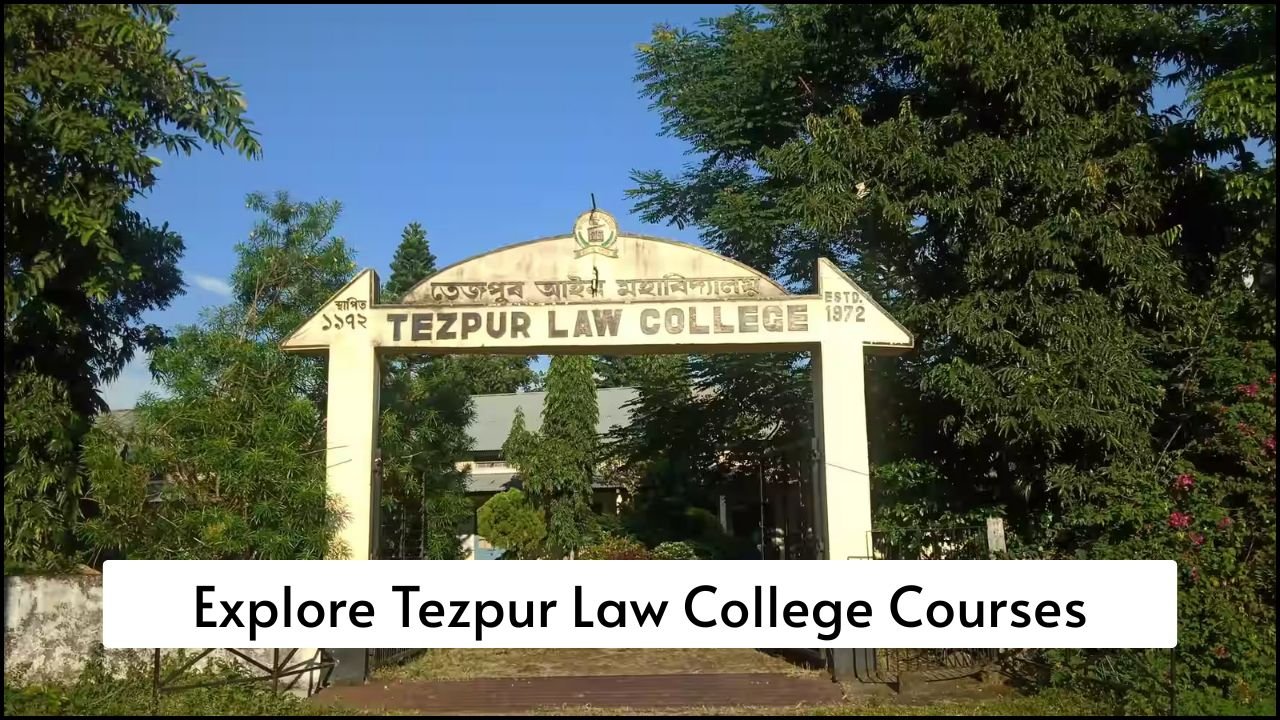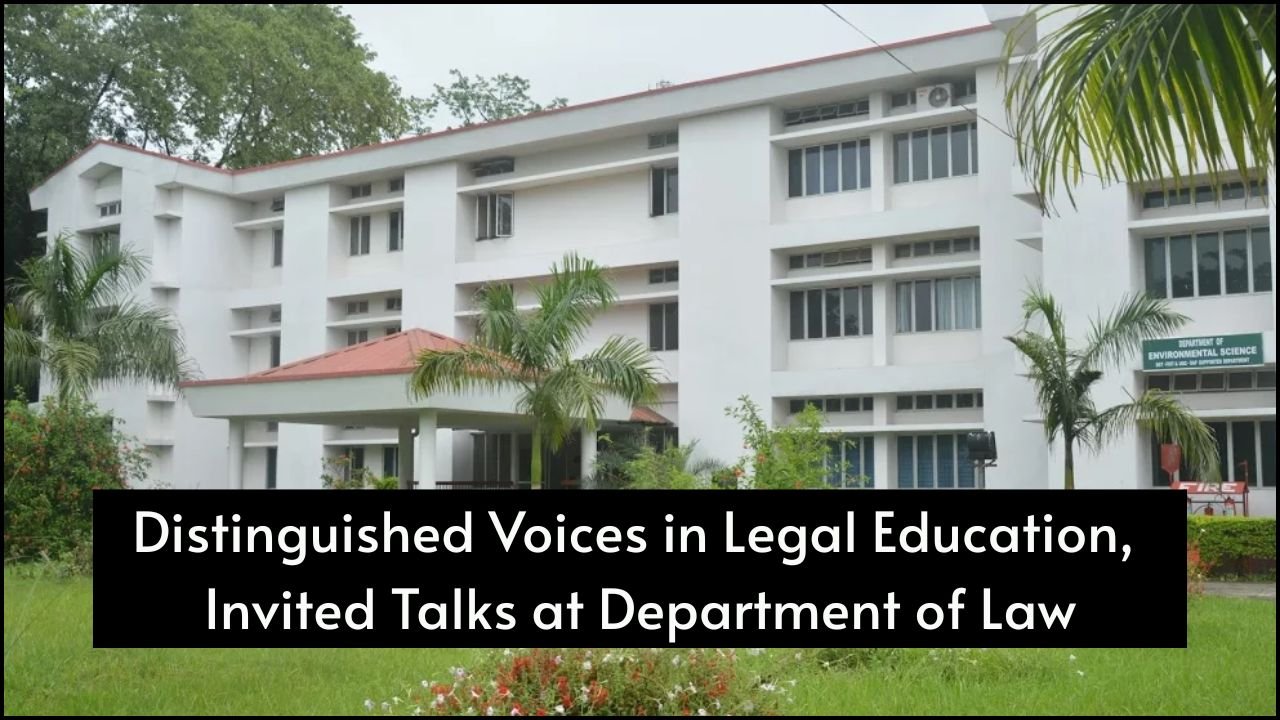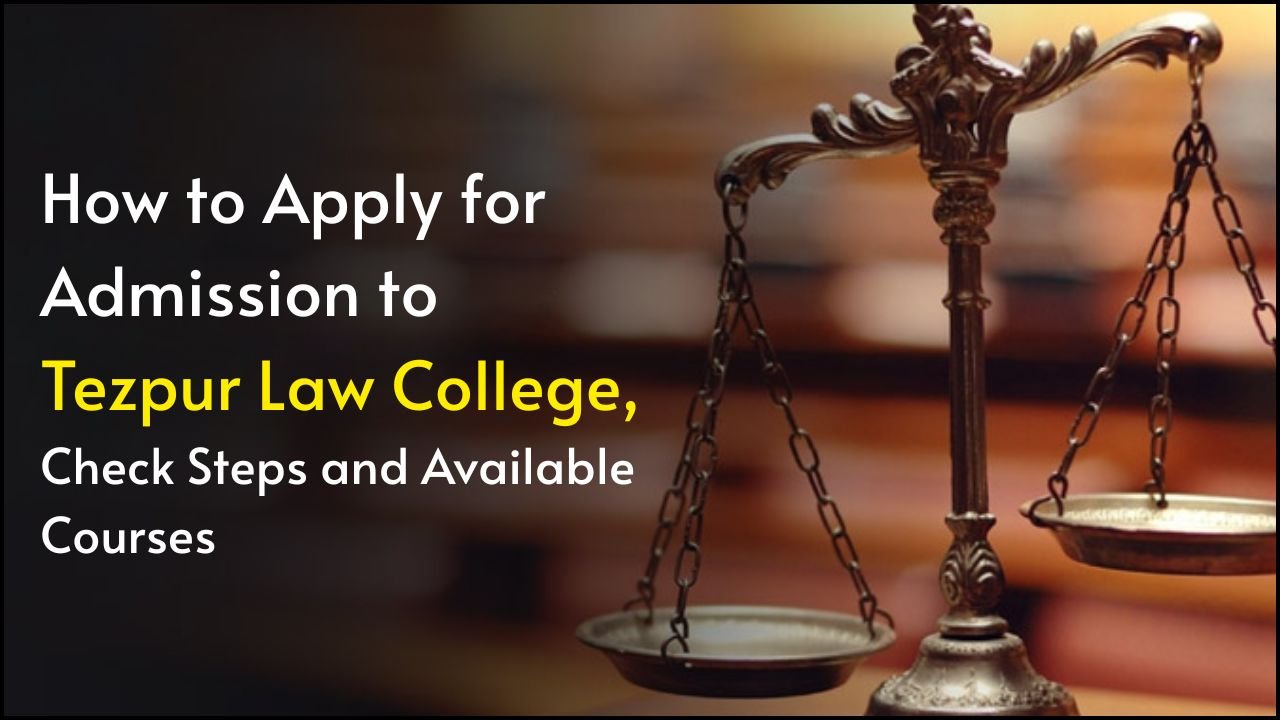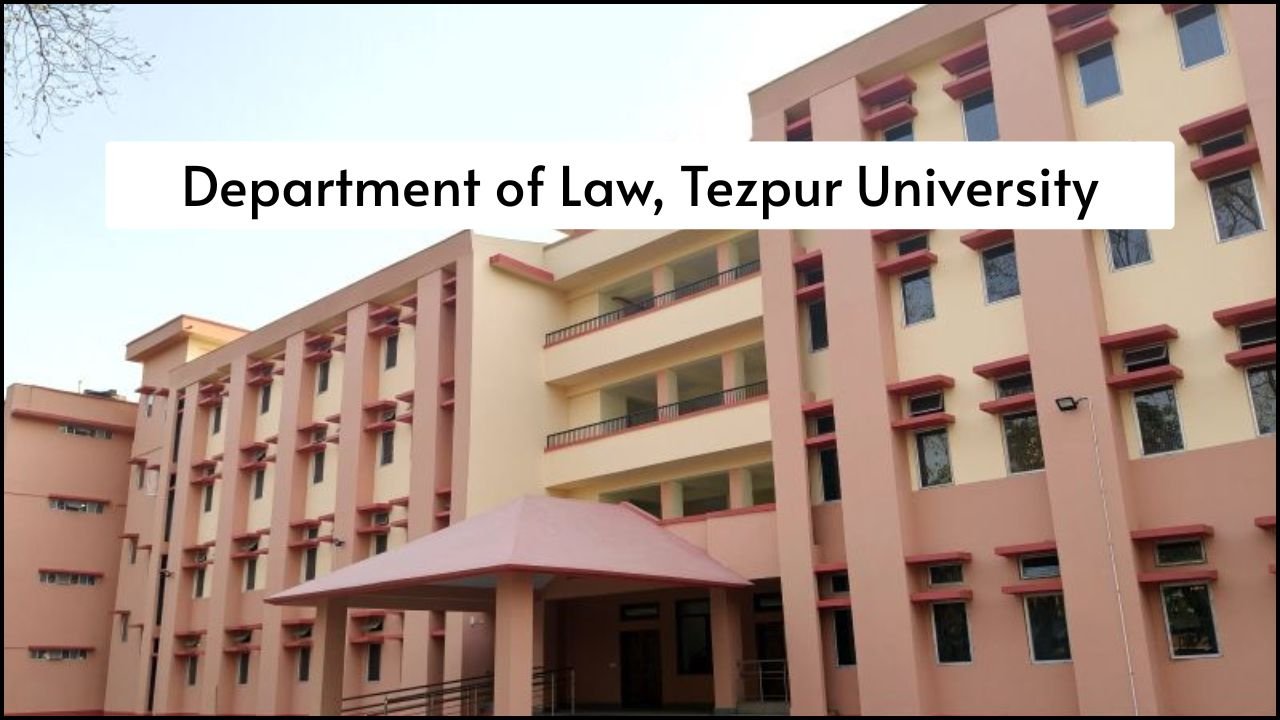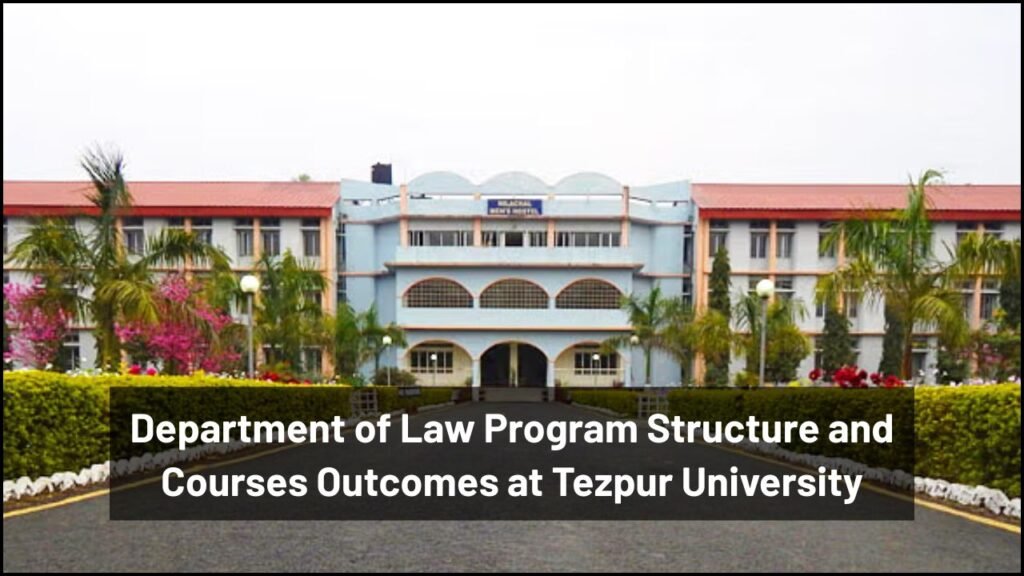
The Department of Law at Tezpur University offers a comprehensive legal education program designed to prepare students for the evolving challenges of the legal profession. The curriculum is structured to provide theoretical knowledge and practical skills, ensuring graduates are well-equipped to serve society through various legal capacities.
Table of Contents
Program Philosophy and Approach
The law program at Tezpur University is built on the foundation of constitutional values, human rights principles, and social justice. The curriculum recognizes that modern legal practice requires not only traditional legal knowledge but also an understanding of contemporary challenges, technological advancements, and interdisciplinary approaches to problem-solving.
The program emphasizes critical thinking, analytical reasoning, and practical application of legal principles. Students are encouraged to develop research skills, understand the socio-economic context of law, and appreciate the role of law in social transformation. The curriculum also places significant importance on human rights, recognizing their central role in contemporary legal practice.
Core Subject Areas and Learning Outcomes
1. Constitutional Law and Governance
The program begins with a strong foundation in Indian Constitutional Law and Emerging Challenges. This course helps students understand the constitutional framework, federalism, and the distribution of powers between different levels of government. Students learn to analyze contemporary constitutional challenges and understand the role of various institutions in upholding constitutional values.
Key learning outcomes include understanding the constitutional vision of justice, analyzing federalism and power distribution, evaluating democratic processes, and examining the relationship between fundamental rights and directive principles of state policy.
2. Research and Methodology
Research Methodology is a crucial curriculum component, designed to develop scientific reasoning and analytical skills among law students. This course introduces students to doctrinal and empirical research methods, emphasizing the importance of systematic inquiry in legal scholarship.
Students gain expertise in legal research techniques, learn to apply various research tools, and develop technological competency for modern legal research. The course prepares students for evidence-based legal practice and scholarly pursuits.
3. Legislative Framework and Interpretation
The Legislation – Principles, Methods & Interpretation course provides a comprehensive understanding of how laws are made, implemented, and interpreted. Students learn about parliamentary procedures, statutory interpretation principles, and the role of legislation in organizing society.
This course is complemented by Interpretation of Statutes, which focuses specifically on the techniques and principles used by courts to ascertain legislative intent. Students develop skills in analyzing statutory provisions and applying interpretation principles to real-world scenarios.
4. Criminal Law and Justice System
- The criminal law component is extensive, covering multiple dimensions of criminal justice. General Principles of Criminal Law introduces students to fundamental concepts of criminal liability, elements of crime, and principles of fair trial.
- Criminology, Penology, and Victimology provides a scientific approach to understanding crime, criminal behavior, and victim perspectives. Students learn about crime prevention strategies, treatment of offenders, and the historical development of criminological thought.
- Criminal Justice and Human Rights examines the intersection between criminal procedures and human rights standards, both nationally and internationally. This course ensures students understand the human rights implications of criminal justice processes.
5. Specialized Criminal Law Areas
The program includes specialized courses addressing contemporary criminal law challenges:
- Socio-Economic Offences covers white-collar crimes and economic offenses, preparing students for modern financial crimes
- Law Relating to Cyber Crime addresses the growing field of cybercrime and digital forensics
- Emerging Challenges in Evidence Law updates students on evolving evidentiary practices in criminal trials
6. Human Rights Focus
Human rights education is woven throughout the curriculum with several dedicated courses:
- Human Rights Jurisprudence provides the philosophical foundations of human rights theory and practice. Students explore various theoretical approaches and contemporary debates in human rights discourse.
- International Human Rights Law covers the global framework for human rights protection, including UN systems and regional mechanisms. Students learn about treaty bodies, enforcement mechanisms, and comparative regional approaches.
- Protection and Enforcement of Human Rights in India focuses on the domestic implementation of human rights standards, examining the role of national institutions and civil society organizations.
- Environment and Human Rights addresses the intersection of environmental protection and human rights, covering principles like intergenerational equity and sustainable development.
7. International and Comparative Law
The program includes significant international law components:
- International Humanitarian Law covers laws of armed conflict, protection of civilians, and the role of international organizations like the International Committee of the Red Cross.
- International Refugee Law addresses the global refugee crisis, international protection mechanisms, and India’s refugee policies.
- Comparative Criminal Procedure provides exposure to different legal systems, helping students understand various approaches to criminal justice administration.
8. Practical Skills Development
The curriculum emphasizes practical skills through several courses:
- Legal Drafting Skills and Outreach Activities develop essential lawyering skills, including drafting, advocacy, and judgment writing. Students also engage in pro bono work and legal aid activities.
- Pedagogy in Law prepares students who may pursue academic careers, covering teaching methodologies and communication skills.
- Judicial Process examines the role of courts in social ordering and policy-making, preparing students for judicial careers.
9. Capstone Experiences
The program concludes with comprehensive capstone experiences:
- Project and Dissertation & and Viva-Voce allow students to conduct independent research, applying methodological skills learned throughout the program.
- Research Seminar provides experience in organizing academic events and developing leadership skills.
Program Structure and Progression
| Course Level | Core Areas | Specialized Electives |
|---|---|---|
| 4th Semester | Constitutional Law, Research Methodology, Criminal Law Principles | Interpretation of Statutes (Audit) |
| 5th Semester | Law and Social Transformation, Correctional Laws, Comparative Criminal Procedure | Media and Human Rights, Legal Drafting Skills |
Assessment and Evaluation Approach
The program uses diverse assessment methods to evaluate student learning:
- Analytical Skills: Students are assessed on their ability to analyze legal problems and propose solutions
- Research Competency: Evaluation through research projects, dissertations, and methodology applications
- Practical Skills: Assessment of drafting abilities, advocacy skills, and professional competencies
- Critical Thinking: Evaluation of students’ ability to critique existing laws and suggest improvements
Career Preparation and Professional Development
The curriculum is designed to prepare graduates for various legal careers:
- Traditional Legal Practice: Courses in drafting, advocacy, and procedure prepare students for litigation practice.
- Judicial Services: Specialized courses in judicial process and criminal procedure prepare students for judicial careers.
- Academic and Research Careers: Research methodology, pedagogy, and dissertation components prepare students for academic pursuits.
- Public Service: Constitutional law, human rights, and administrative law courses prepare students for government positions.
- Corporate and Commercial Practice: Courses in socio-economic offenses and cyber law prepare students for corporate legal practice.
Integration of Technology and Modern Challenges
The program recognizes the importance of technological literacy in modern legal practice. Courses address cybercrime, digital evidence, and technological tools for legal research. Students learn to navigate the intersection of law and technology, preparing them for practice in the digital age.
Social Justice and Community Engagement
Throughout the curriculum, there is emphasis on law’s role in social transformation and community service. Students are encouraged to engage with vulnerable populations, understand the law’s impact on marginalized communities, and develop a commitment to social justice.
The program’s focus on human rights, correctional laws, and protection of vulnerable groups ensures graduates understand their professional responsibility to serve all segments of society.
Final Analysis
The Department of Law at Tezpur University offers a comprehensive and forward-looking legal education that balances traditional legal knowledge with contemporary challenges. The curriculum’s emphasis on human rights, research skills, practical competencies, and social responsibility prepares graduates to be effective legal professionals and engaged citizens.
The program’s structure ensures that students not only learn legal rules and procedures but also develop the analytical thinking, ethical grounding, and practical skills necessary for effective legal practice in the 21st century. Through its combination of core subjects, specialized electives, and practical experiences, the program produces graduates who are well-prepared to contribute meaningfully to the legal profession and society at large.


